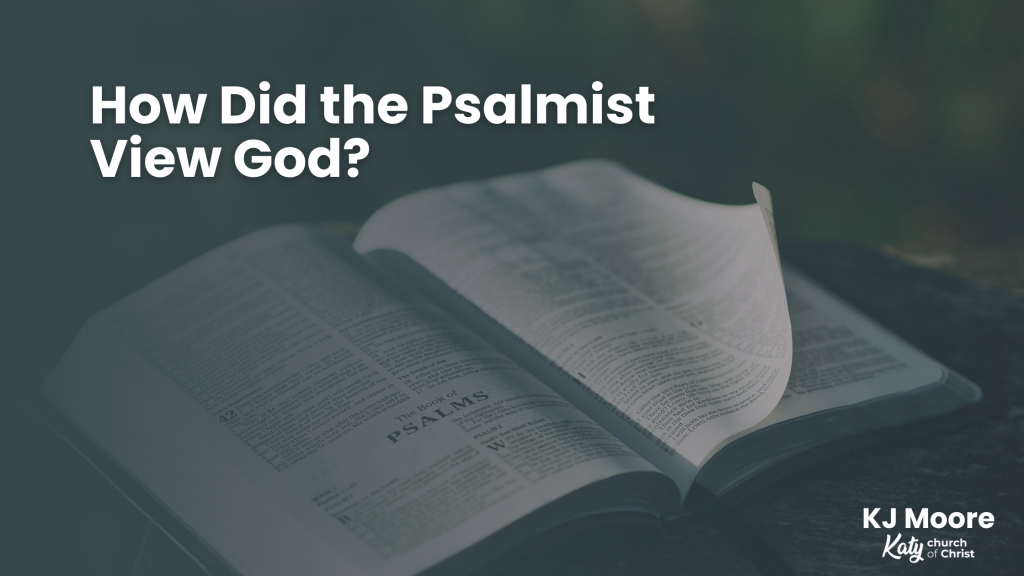
What benefit is there in studying the Book of Psalms? Allow me to propose a few. Namely, do we, as the people of God, not benefit from hearing the most powerful and heartfelt emotions of those who fear Him? Do we not benefit from seeing the multifaceted nature of prayer, the joy of worship, and the clarity of spiritual self-investigation? The Psalms harmonize with the other contents of Scripture in a way that is worthy of our study, and they certainly teach that all of God’s word holds value and excellence (Ps. 119:160). It is not only beneficial to study the Psalms, it is outright necessary, and the next month of articles will cover brief selections from these works of divinely-inspired poetry.
Take a look at Psalm 18:25-30, as we discuss the Psalmist’s view of God. David initially praised God with these words “when the Lord delivered him from the hand of all his enemies, and from the hand of Saul” (2 Sam. 22:1). Though slightly revised in this written, Psalmic form, it still maintains a great deal of the structure and sentiment of the prophet’s record. Consequently, there are many times in 2 Sam. 22 in which the words are identical to those in Ps. 18, especially in verses 25-30.
Verses 25-26 concern how the Lord appears to various kinds of people.
The first part of v. 25 is worded as such in the ESV: “With the merciful you show yourself merciful.” The term rendered here as “merciful” could more generally refer to the “faithful” or “godly.” The second part of v. 25 shows that, to the “loyal,” God will show Himself as loyal. Verse 26 proceeds to say that God shines as pure to the pure, but appears as twisted to the twisted (“tortuous” to the “crooked”). While God is unchangeable, and His attributes are not at all influenced by mankind, David beautifully remarks that God’s appearance to a man is an echo of how a man appears to Him. When man acts against the will of God and the results are powerfully seen in his life, that man will likely accuse God of being cruel. However, when man acts in harmony with God’s will, the man will view God as his comfort. God’s justice is always perfect (Gen. 18:25; Ps. 18:30), but His justice will be interpreted in various ways depending on the one affected.
Verses 27-29 show what the Lord does.
The humble and afflicted are exalted and saved by God, while the haughty and prideful will be lowered and humiliated (v. 27). David elaborates on those in the former group, reflecting on his own experiences. David and, by extension, all people of God view Him as their light in darkness (v. 28) and their power in adversity (v. 29). These are qualities that only God can rightly claim, and David praises God for the glorious light and strength He provides.
Verse 30 clearly states who the Lord is.
The Lord is faultlessly and completely perfect, without flaw, division, or insufficiency, and His conduct proves it (v. 30a). He is trustworthy, and His word is demonstrably reliable (v. 30b), as seen in David’s life and in your own. Finally, David states that God is a shield for all who seek protection in Him (v. 30c), the only shield capable of complete protection. In Him alone the people of God must seek refuge. As we reverently reflect on the greatness of God in our worship, may we joyously mirror the Psalmist’s view of Him (Ps. 18:1-3).
-KJ Moore